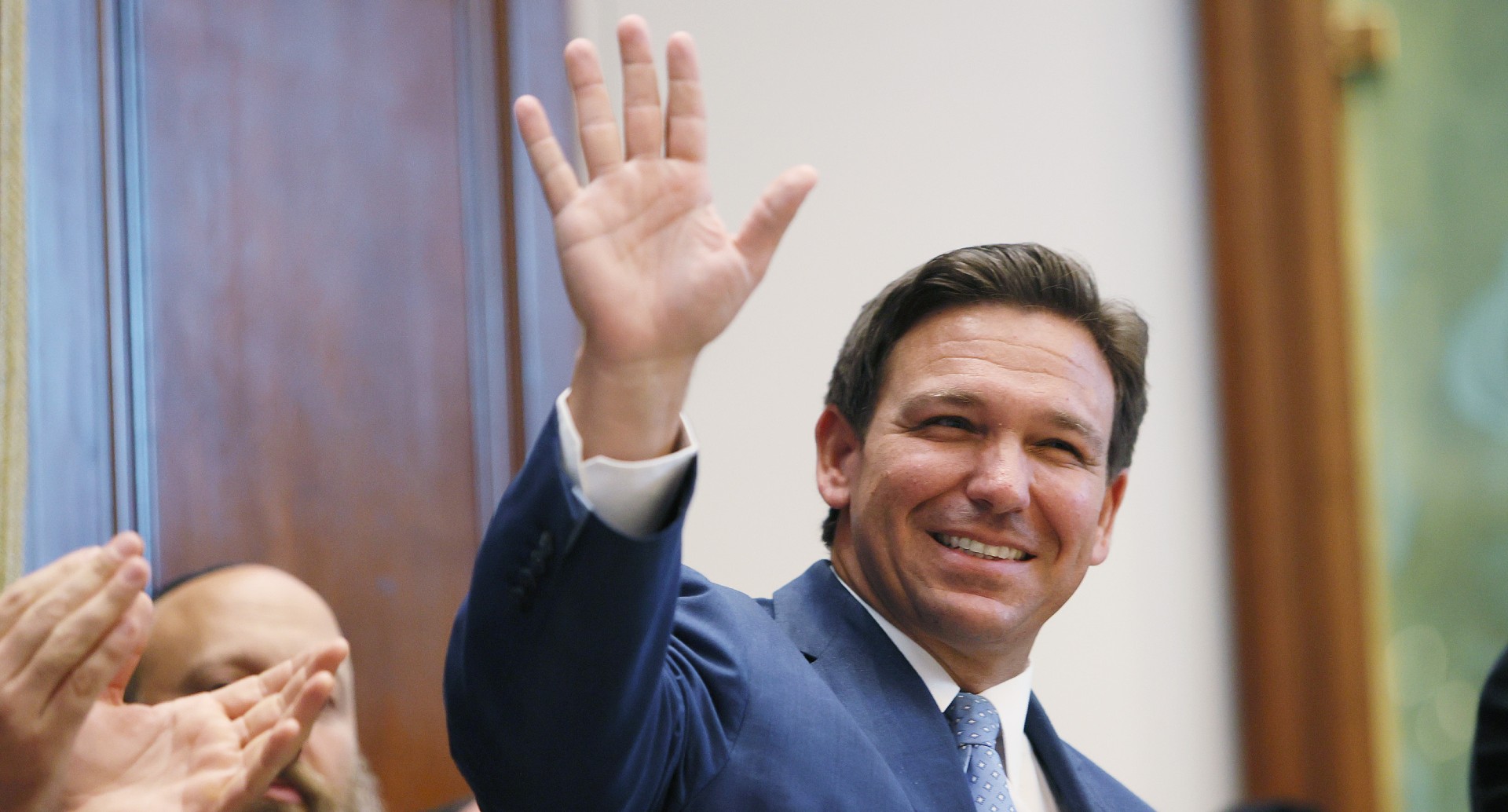OPINION: This article may contain commentary which reflects the author's opinion.
Florida has become the largest state in the union to mandate high school students take and pass a financial literacy course before they can successfully graduate.
According to CNBC, GOP Gov. Ron DeSantis signed SB 1054 into law on Tuesday after it was passed by unanimous votes in both the Florida House and Senate earlier this month.
“What the bill is doing with financial literacy is really providing a foundation for students that’s going to be applicable in their lives regardless of what path they take,” said DeSantis during a press conference. “This will provide a foundation for the students to learn the basics of money management, understanding debt, understanding how to balance a checkbook, understanding the fundamentals of investing.”
The new law will take effect ahead of the 2023-24 school year and apply to students entering the ninth grade. It will require they take and pass a half-credit course in personal finance before they can graduate.
“Whether our students choose to go to one of our great colleges or universities, do a trade or apprenticeship program, a career in the arts or the military, every student deserves to be equipped with the education and knowledge to succeed financially in our society,” noted Rep. Demi Busatta Cabrera, a Republican and one of the main sponsors of the bill.
With the bill’s passage, Florida is the latest state to take the subject of personal finance instruction at a young age seriously, joining a growing trend of states that have adopted similar legislation.
“The world of money is changing so fast, if we don’t help our students keep up, the next generation is going to repeat cycles of a lack of financial literacy,” Yanely Espinal, director of educational outreach at Next Gen Personal Finance, a nonprofit, told CNBC.
The financial news network added:
Currently, there are 54 personal finance education bills pending in 26 states, according to Next Gen Personal Finance’s bill tracker. Now, 11 states, including Florida, require students to take a stand-alone personal finance course to graduate, which the nonprofit considers the gold standard of such education.
More than 20 other states include some sort of personal finance education in their curriculum in different ways. And others have various proposals, as well. For example, a bill proposed in Arizona says a personal finance course can fulfill a math course requirement, according to Next Gen Personal Finance.
Another bill proposed in Tennessee would mandate personal finance courses for middle school students. Tennessee is one of seven states that already guarantee personal finance courses for high schoolers.
However, as noted by Rick Moran at PJ Media, one issue may be finding teachers who are qualified to teach the subject of personal finance.
“Teachers feel unqualified to teach financial literacy,” Julie Heath, director of the Economics Center and economics professor in at the University of Cincinnati, said, according to Money Q&A. “Eighty-two percent say they are not prepared to teach these concepts, even as over 90 percent of them think they need to be taught in schools.”
“Schools and districts shouldn’t place any teacher in a position to teach subject matter he or she feels unqualified to teach,” Heath added. “Shrinking budgets mean that teachers often do not get the professional development that would make them more confident to teach financial literacy.”
Adding the outlet: “How well qualified to teach financial literacy, for example, is a teacher with $50,000 in credit card debt?”
While some conservatives may think that teaching kids about money is a job better suited for parents, Moran points out that some students may have parents who are not literate in such matters themselves or they may not have any parents at all.
“The issue is too important not to be all-inclusive and mandatory — just like instruction in the Constitution and other civics lessons,” he wrote, adding: “DeSantis has once again proven himself to be an innovative and able leader.”
